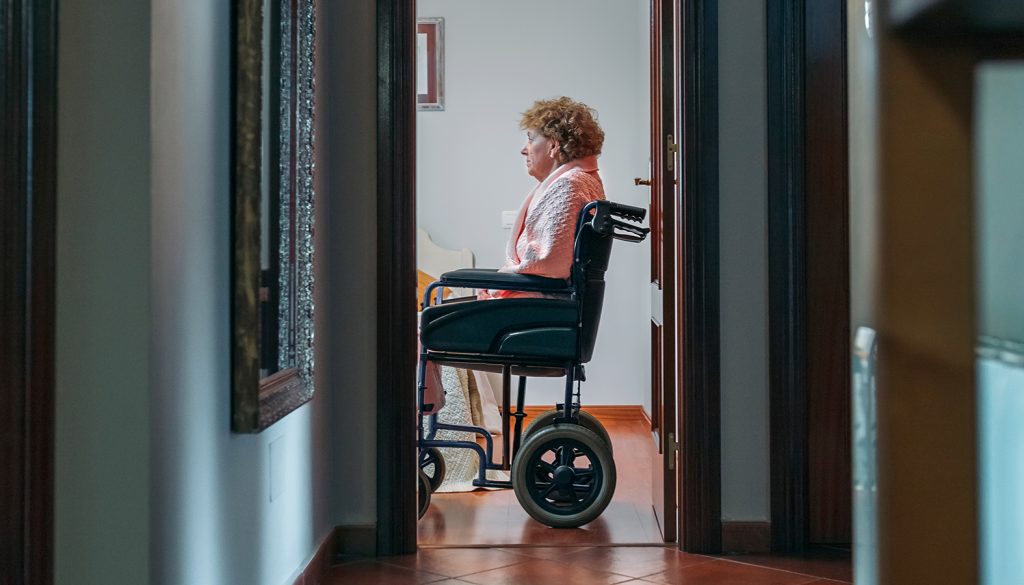On Oct. 5, Gov. Gavin Newsom quietly signed a bill that strips protections — including a 15-day waiting period — from terminally ill people seeking assisted suicide.
His signing of State Bill 380 came one day after he approved a moratorium on state licenses for new residential hospices, due to widespread fraud involving doctors falsely telling patients that they are terminally ill.
“It’s crazy that on one hand you have the state of California saying that there has to be a moratorium because there are so many bad actors, but on another bill they’re saying that everything is safe and we will remove the safeguards for assisted suicide,” said Serena Alvarez, who testified against the bill on behalf of the League of United Latin American Citizens (LULAC).
The waiting period between two requests for lethal drugs was reduced from 15 days to 2 days. The revised law also removed a requirement for patients to formally attest, 48 hours before taking the drug, that they were making an uncoerced choice to kill themselves.
However, under pressure from groups including LULAC, disability rights organizations and the California Catholic Conference (CCC), legislators amended provisions that opponents say would have made the new law even more dangerous. A clause that would have forced hospitals and doctors with conscientious objections to refer patients for the lethal drugs was dropped. A “sunset” provision requiring review and a vote on renewal and after 10 years — originally set for the end of 2025 — was pushed to 2031 instead of being eliminated.
“This was a low blow,” said Kathleen Domingo, CCC executive director. In 2015, the first bill to legalize assisted suicide had pushed through a special session in an unorthodox manner, and promises of a thorough review after 10 years were instrumental in its passage.
The revised law “reduces the already weak safeguards and sought to remove the sunset provision in this law without any chance for the public to review the data and see how this is working,” Domingo said.
California’s Catholic bishops and other opponents of assisted suicide lobby for better, more accessible, medical care to prevent and cure illness, and for palliative care to relieve suffering among those who are dying.
Advocates for removing the safeguards claimed that people who initially requested the drugs were dying before they could receive them. Domingo believes there is stronger evidence that patients simply chose not to kill themselves, but said evidence either way is scant. If people died before they could complete the process, that indicates the drugs are not necessary, she said.
“They are at a point in their lives where they are ready to die — and then they do. Why is it that it is terrible that they don’t take these drugs, that they died naturally?”
To Alvarez, the bill epitomizes health care discrimination against Latinos, citing findings that health care providers neglect them. Instead of improving medical care, she said, the state is offering expedited death.
“Vulnerable populations are being targeted right now for the expansion of assisted suicide,” she said, citing “outreach” advocating assisted suicide as a “choice” for minority populations.
“That is not a choice if they don’t have access to care. If they fail to give care such that they hasten the death of Latino residents, it makes no sense to say that we want assisted suicide in our community. We don’t,” Alvarez said.
Disability rights groups have been the most vocal opponents of assisted suicide.
Such laws are “making the killing of already at-risk individuals and communities more acceptable and easy enough to do — so commonplace that no one, except those fighting to stay alive, think twice about or pause to question it,” said an Oct. 7 statement from the Disability Rights Education and Defense Fund.
Dan Okenfuss, public policy manager at the California Foundation for Independent Living Centers, was among those who testified against the revised law. His group had also opposed the original legalization of assisted suicide in 2015.
“We had not seen any data from the opposite side saying [that the 15-day waiting period] is too long,” he said.
“This is a very life-and-death issue. There could be pressure from everyone from family members to caregivers to make a hasty decision,” because of the cost or stress of care, he said.
“If you rush this decision and you’re wrong, it’s too late.”
Most people interviewed for this article mentioned Marilyn Golden and Kathi Hamlin, fierce opponents of assisted suicide who died unexpectedly within 10 days of each other this fall. Hamlin, whose background was in the pro-life movement, was a tireless researcher, providing data and analysis on euthanasia and assisted suicide. Golden, a nationally prominent leader in the secular disability-rights movement, had spoken against the California bill.
“Don’t be seduced by the rhetoric of choice for a few, into a dangerous policy change that will bring social injustice to many,” Golden said in July.
Both women “had been working on SB 380 until the bitter end,” Domingo said. “For them to pass so suddenly and so close together, I feel that our movement has these two guardian angels now.”
Learn more about two other laws threatening pro-life Californians here.

